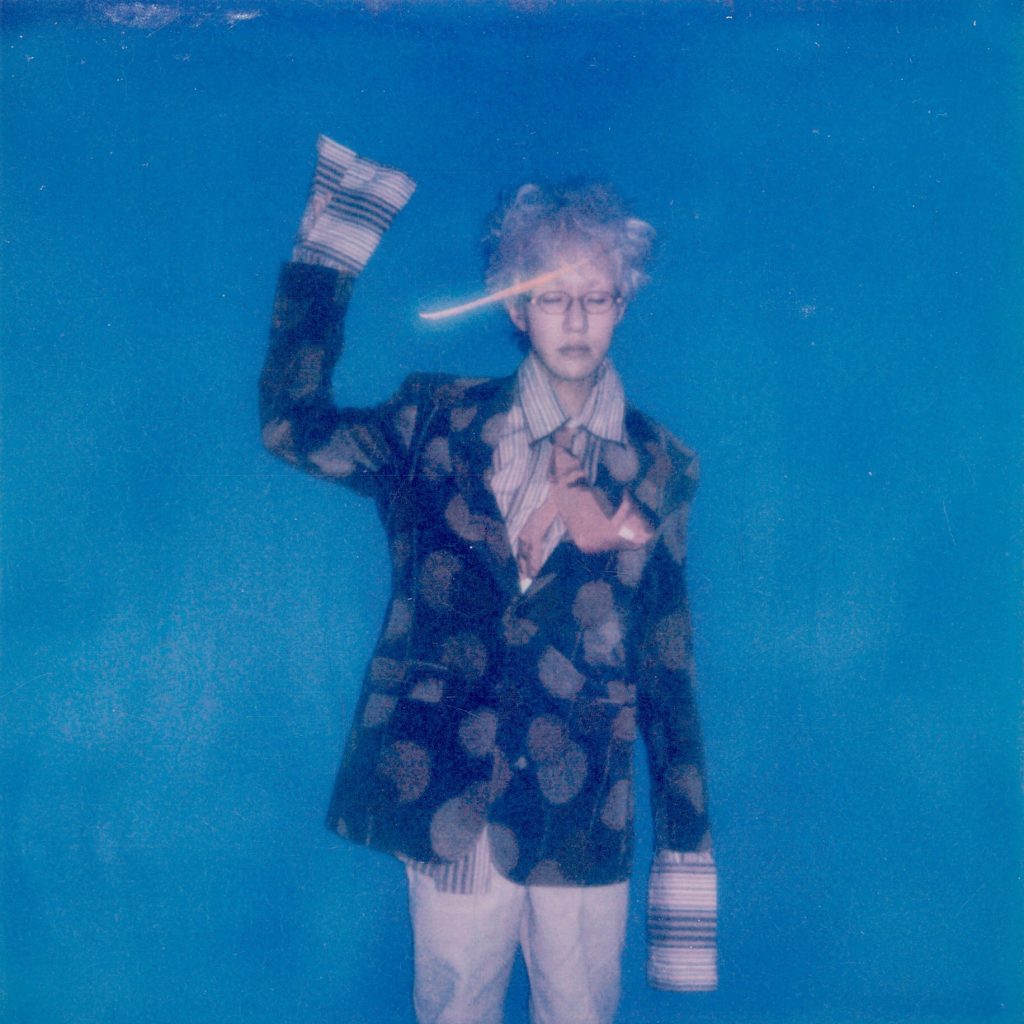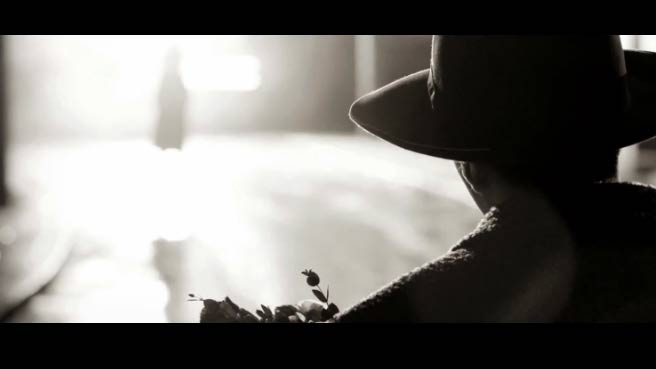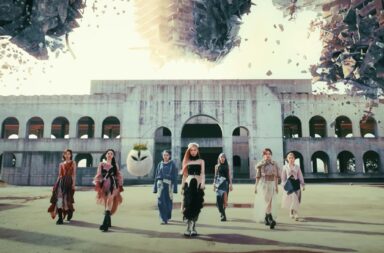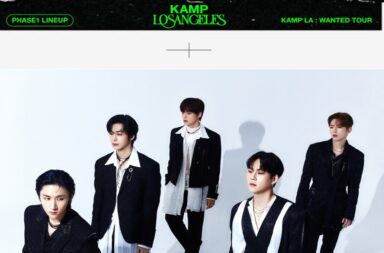
Despite his non-mainstream singing style, Zion.T is no stranger to Korean music charts. His distinctiveness extends to the entirety of his artistic expression–his fashion, theatrical performance gestures, rap-singing style, and of course, his touching lyrics. His songs cover a range of topics, from romantic serenading to heart-warming stories about his family, but this post will explore the evolving commentary of being a celebrity in his songs.
First on the list is “Click Me” (ft. Dok2) which was released as part of his first album, Red Light in 2012. As a debut track, the song effectively acts as a self-introduction to the public, and the words reinforce the image that Zion.T wants to portray. It showcases his personal style of lyrics, where he converses with the audience in first-person:
Hello my name is Zion.T
I live in Gangseo-gu, Seoul
The specifics are my privacy
Already, we get Zion.T’s distinctive tongue-in-cheek, meta-referential lyrics that we will see more of in his songs later on. At the same time, as cheeky and lighthearted as his lyrics are, the line “The specifics are my privacy” hints of Zion.T’s feelings towards being a celebrity–there is the celebrity version of himself that he wants the public to be acquainted with, and there is the personal, private side of his life that he wishes to keep to himself.

The song also showcases what other elements Zion.T wishes the public to remember him by. Firstly, his largely self-produced music which positions him as more than a singer, but an artistic creator as well, emphasized through his word-painting (lyrics that literally reflects the music) which melds his artistry as a lyricist and composer together; and secondly his characteristic fashion style, with “Black sunglasses with skinny jeans (that’s me)” being just one example. What is interesting is his word choice of “Click Me”, the title of the song, and the phrase he sings as an invitation to follow his works as a singer… In this sense, Zion.T compounds himself as a singer with the commodity he is selling, be it a performance, a song on music streaming sites, or a video on Youtube.
The title “Click Me” that appears on websites as the title of his song, refers to not only his product but Zion.T himself. Zion.T’s debut track thus hints at his perspective towards his career as a celebrity–his acknowledgment of the public, constructed image he is selling called “Zion.T”, and at the same time, while he guards his private life against the public eye, the lines blur when he embodies the very product he is selling. While he invites the public to grant him more attention, a necessity for any artiste in the music industry to succeed, the undertones of “Click Me” reveal a more complicated attitude towards being a celebrity.
This bittersweet attitude to his celebrity status becomes more pronounced in his songs over the years. With hits like “Yanghwa BRDG” (2014), “Eat” (2015), and “No Make Up” (2015), Zion.T cemented himself as a skilled self-made singer in the music industry and in the public eye. Ironically, Zion.T’s rocket to fame after the popularity of “Yanghwa BRDG” in 2014 is a part of his “Complex” (ft. G-Dragon) (2017). Derived from phrases like “inferiority complex”, the word “complex” is loosely used as slang in Korean culture to mean “insecurity”. The song, while written in the first-person, addresses different audiences. While the “you” refers to his lover in the first stanza (“When I hug you, when we sleep together”), it can be interpreted as the public in the chorus (“I’m complex [more] than the magazine / I hate me more than you hate me”), and thus covers a range of insecurities that Zion.T feels around his lover, in the public eye, and by himself. Notably, his insecurity as a celebrity stems from the inadequacy of his public image, as represented by “the magazine”, and the public’s hatred of this version of Zion.T. In essence, the song’s message can be summed up in the chorus: While people may hate the partial, public version of himself, Zion.T assures them that as he knows himself better, he hates himself more, evidenced by his unseen insecurities.

For example, he touches on his insecurity about his physical demeanour, which appears in the first two stanzas–“I wish I gained more weight” and “I wish I was taller”, a shadow of future songs like “Malla Gang” (2018) which revolve around this topic. In spite of his popularity, he is insecure about his singing abilities. He introduces his occupation in the language of a web profile, “Personal profile, occupation: singer”, showing that this is first and foremost how the public views him. Yet, he immediately follows this introduction with a personal aside to his mother, “Mom, how do you sing?”, painting an image of a helpless child seeking his mother’s help. Similarly, he comically reiterates this sentiment by saying that he wishes to be an idol instead–“Cuz all you have to do is write a love song / If you can’t sing, all you have to do is take it off”, followed by a hilarious mimicry of an idol rapping and saying cliche words, “I love you, I’m going crazy”. While idol fans may jump at the insult, the lines would be more accurately read as a self-deprecating joke. After all, the humour comes from the disparity between his mimicry and idol performances, and contextually is a continuation of his insecurity surrounding his singing abilities, the very reason why he wants to be an idol.
As mentioned, the very popularity of “Yanghwa BRDG” has become a part of his complex:
I wish they’d stop calling
Especially when you all are passing the Yanghwa Bridge
Yea, yea, that song is good
But what does that bridge have to do with it?
This quote echoes “Click Me”‘s desires of separating public and private life, and “Complex”, while having a lighthearted and teasing tone, ultimately reveals a multi-faceted side of popularity, as popular artistes can likewise suffer from insecurities, whether as a result of public or private sentiments.
Backtracking slightly, the quintessential song that captures Zion.T’s cynicism towards his celebrity status is “Wishes” (2015).
The simple but raw lyrics reflect Zion.T’s thoughts about the public’s expectations:
Those people
They expect me to sing
They expect me to say something
But I have nothing to say
They expect me to comfort them
They expect me to be something
But I’m just a nobody
It is no coincidence that this song comes after his aforementioned hits, many of which are known to be comforting and uplifting tracks. His success in delivering comfort through his songs becomes a double-edged sword, as the public’s increasing expectations become burdensome. The expectation detracts from his joy of songwriting that we saw in “Click Me”, as the process becomes one that panders to the audience–“I pucker my lips / To whistle / Curious what kind of melody they want”. In essence, Zion.T distances himself from his celebrity status and laments that he is but a singer, not a superior person who is able to dispense comfort. The most striking moment of the song is when he blows into the microphone, which while jarring, is a deliberate part of his studio recording and live performance. In defeated exasperation, he delivers to the expectations with a whistle that they want, but it is only wind (the Korean title of the song, “바람”); empty noise.
The meaninglessness of lyrics is one of Zion.T’s distinct lyrical style, apparent in his other songs such as “Sleep Talk” (ft. Oh-hyuk), the majority of which containing gibberish that emulates the title, and “The Song”, which also features random prattling. More than conveying a meaningful message as someone in a superior position to help, these instances of onomatopoeia in his music emulate aestheticism–art for art’s sake. They do not convey any humanistic message, but simply add to the listener’s (and performer’s) enjoyment of the song. His lyrics, such as those discussed in this post, often evoke the first person pronoun to a second person and hence acknowledge his role as a singer, and the audience as a listener, and places both on par rather than elevating himself as the celebrated person, or celebrity, that is one-sidedly watched.

Ultimately, Zion.T’s songs capture his complicated feelings towards being a celebrity, and over the years departs from the initial portrayal of himself as a commodity. Instead, his lyrics in recent years portray his vulnerability as a human–grappling with public opinion even during bouts of success, or his own insecurities that are only known to him. Ironically, it is this acknowledgement of his celebrity status that makes Zion.T’s lyrics sincere and comforting as the ridding of a constructed wall, most notably in the case of “Wishes”, forms a stronger connection for sympathy between the singer and the audience.
(YouTube, Naver, Lyrics via Popgasa [1][2][3], Images via The Black Label.)


